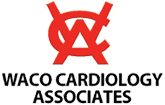Arteries are blood vessels that move oxygen-rich blood through the body. The carotid arteries supply blood to the brain, neck and face. Plaque, a waxy substance made of fat, cholesterol, calcium and other substances, can build up in the carotid arteries and partially or completely restrict blood flow. Plaque can also rupture, forming a clot that restricts blood flow to the brain. This can lead to stroke, which occurs when blood is cut off to part of the brain. Risk factors for carotid artery disease include: Smoking High cholesterol High blood pressure What are the symptoms of carotid artery disease? Some people with carotid artery disease don’t experience symptoms until they display signs of a stroke. When warning signs of carotid artery disease do occur, they may include: Bruit: An abnormal “whooshing” sound your doctor may hear when listening to your carotid arteries with a stethoscope Transient Ischemic Attack (TIA): A “mini-stroke” that may cause sudden numbness in the face or limbs, trouble speaking, dizziness, loss of balance and difficulty seeing How is carotid artery disease diagnosed? Carotid artery disease can be diagnosed using your medical history, a physical exam, and the results from several tests, including: Carotid ultrasound Carotid angiography Magnetic resonance angiography Computed tomography (CT) angiography How is carotid artery disease treated? Carotid artery disease can be treated through lifestyle changes, medication and medical procedures. Lifestyle changes that may prevent or treat coronary artery disease include: Maintaining a healthy diet to lower high blood pressure and high blood cholesterol Quitting smoking and avoiding secondhand smoke Increasing your physical activity Managing your weight You may be prescribed medication to treat high blood pressure, high cholesterol and diabetes. Medications such as aspirin and clopidogrel can prevent blood clots from forming in the carotid artery, which can reduce your risk of having a stroke (always talk to your doctor before starting yourself on a medication, even aspirin). Blocked carotid arteries may require one of the following procedures if lifestyle changes aren’t enough: Carotid endarterectomy Carotid artery angioplasty
Caring for the hearts of Central Texas Since 1971
(254) 399-5400

